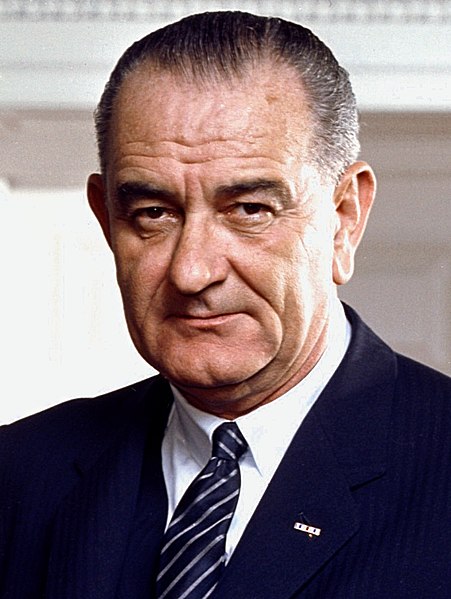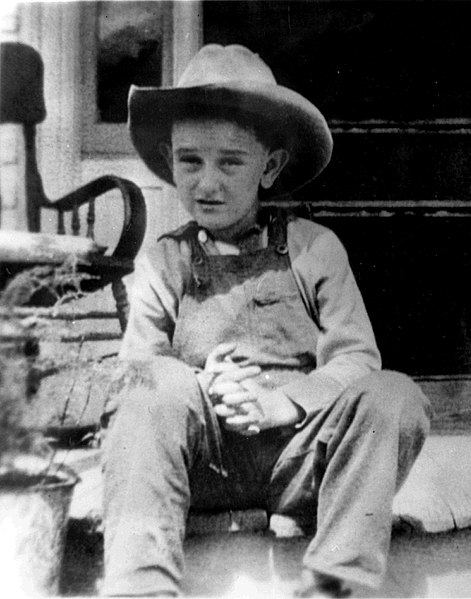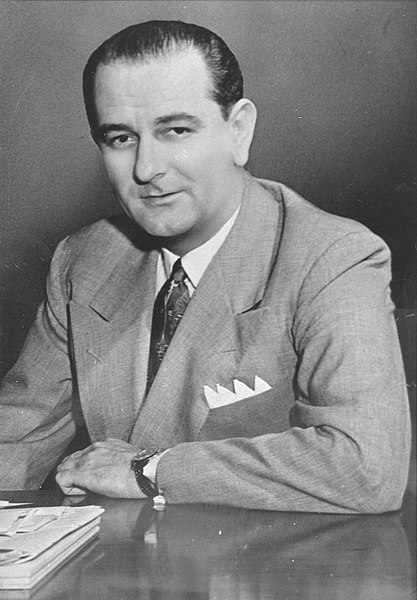The war on poverty is the unofficial name for legislation first introduced by United States President Lyndon B. Johnson during his State of the Union Address on January 8, 1964. This legislation was proposed by Johnson in response to a national poverty rate of around nineteen percent. The speech led the United States Congress to pass the Economic Opportunity Act, which established the Office of Economic Opportunity (OEO) to administer the local application of federal funds targeted against poverty. The forty programs established by the Act were collectively aimed at eliminating poverty by improving living conditions for residents of low-income neighborhoods and by helping the poor access economic opportunities long denied from them.
President Lyndon B. Johnson signed the Poverty Bill (also known as the Economic Opportunity Act) while press and supporters of the bill looked on, August 20, 1964.
President Johnson's poverty tour in 1964
Jamie Whitten was a Mississippi House Representative who was an influencer against the minorities of the civil rights movement in the Mississippi delta he was also part of the Delta Council and White Citizens Council.
Lyndon Baines Johnson, often referred to by his initials LBJ, was an American politician who served as the 36th president of the United States from 1963 to 1969. He became president after the assassination of John F. Kennedy, under whom he had served as the 37th vice president from 1961 to 1963. A Democrat from Texas, Johnson also served as a U.S. representative and U.S. senator.
Official portrait, 1964
A seven-year-old Johnson, wearing his trademark cowboy hat, at his childhood farmhouse near Stonewall, Texas, in 1915
Johnson as a lieutenant commander in the U.S. Naval Reserve in March 1942
Johnson's United States Senate portrait in the 1950s







